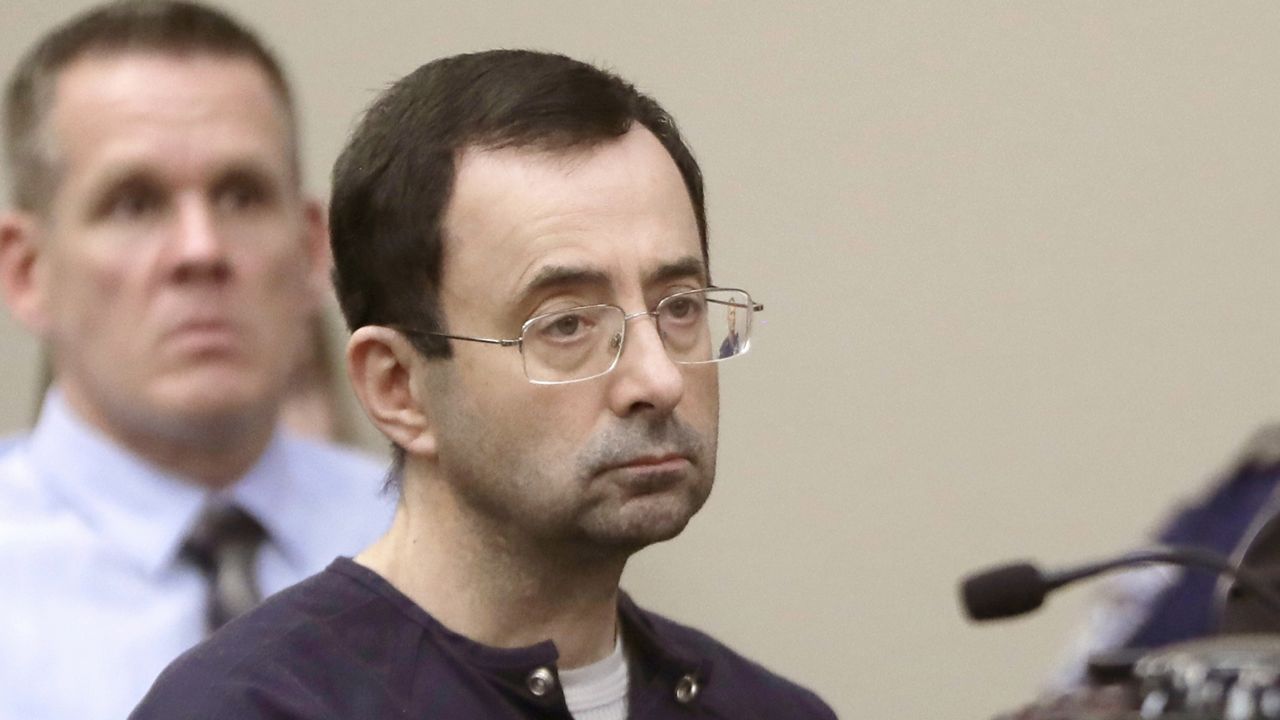Senior officials in the Federal Bureau of Investigation made “fundamental errors” when they investigated allegations of sexual abuse against former U.S.A. gymnastics physician Larry Nassar, according to a government report released Wednesday.
The report, released by the Department of Justice Office of the Inspector General (OIG), found that officials in the FBI field office in Indianapolis “failed to respond to allegations of sexual abuse of athletes by former USA Gymnastics physician Lawrence Gerard Nassar with the urgency that the allegations required.”
“We also found that the FBI Indianapolis Field Office made fundamental errors when it did respond to the allegations, failed to notify the appropriate FBI field office (the Lansing Resident Agency) or state or local authorities of the allegations, and failed to take other steps to mitigate the ongoing threat posed by Nassar,” the report states in part.
The long-awaited watchdog report raises serious questions about how the Justice Department and the FBI handled the case and highlights serious missteps at the FBI between the time the allegations were first reported until Nassar’s arrest.
Nassar, a physician who was renowned for treating athletes at the sport’s highest levels, was found to have sexually assaulted hundreds of victims and had thousands of images of child pornography in his possession. Nassar was ultimately charged in 2016 with federal child pornography offenses and sexual abuse charges in Michigan.
In 2017, Nassar was sentenced to 60 years in federal prison; he was sentenced to serve an additional 40 to 125 years in a Michigan State court in 2018.
According to the DOJ report, U.S.A.Gymnastics contacted the FBI about allegations against Nassar as early as July 2015, but it took months before the agency opened a formal investigation.
At least 40 girls and women said they were molested over a 14-month period while the FBI was aware of other sexual abuse allegations involving Nassar.
The documents name FBI employees who “made false statements” to other members of law enforcement over the course of the investigation.
Indianapolis Field Office Special Agent in Charge W. Jay Abbott violated FBI protocol numerous times, per the report, including by twice lying to the OIG about victim interviews, submitting reports with materially false information and repeatedly attempting to downplay the amount of errors made by his office during the investigation into Nassar.
According to a since-deleted press release from the Indianapolis Field Office, Abbott retired from his position in January 2018.
The inspector general interviewed an FBI supervisory special agent last September who said the original allegations reported by USA Gymnastics and then-president Stephen Penny were “very vague” and who questioned Penny’s credibility, describing him as “kind of a snake oil salesman kind of guy.”
That special agent also told investigators that the Indianapolis field office didn’t appear to have jurisdiction to investigate because the alleged crimes did not take place in Indiana. That agent and an FBI supervisor in the office said they told Penny to contact local law enforcement — a claim contradicted by Penny and the chairman of the USA Gymnastics Board of Directors.
The FBI said the supervisory special agent “violated multiple policies” and that the agency took immediate action when it learned that the agent did not properly document the sexual abuse complaints, had mishandled evidence and failed to report abuse.
The OIG report made a number of recommendations to the FBI on how to improve protocols for future investigations, which the FBI accepted in a response letter submitted Tuesday. The recommendations include clarifying and updating policies on communications with other FBI officers and local and state law enforcement agencies.
The FBI also acknowledged the conduct was “inexcusable and a discredit” to America’s premier law enforcement agency.
“The FBI has taken affirmative steps to ensure and has confirmed that those responsible for the misconduct and breach of trust no longer work FBI matters,” the statement said. “We will take all necessary steps to ensure that the failures of the employees outlined in the Report do not happen again.”
The Associated Press contributed to this report.



